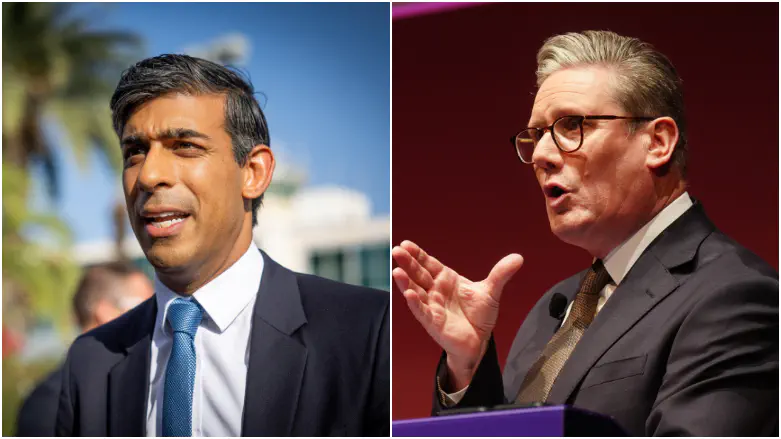
Another blow to the Conservative party in Great Britain: in the local elections held in several cities around the country, the governing party suffered extensive losses.
These results may indicate what is to happen in the run-up to the general elections that will be held next year and it is possible that the Conservative party will lose the helm after being in power for 15 years.
Leading the victories registered by the Labour Party, the second largest party in the country, is that of the Mayor of London, Sadiq Khan who was elected for a third consecutive and historic term.
According to the latest polls, opposition leader Keir Starmer is expected to return his party to power in the next general elections and, according to some polls, even break a record number of seats, with a gap of over 20 percent between his party and the conservative party.
Meanwhile, Labour has managed to bounce back from the heavy losses it suffered in the 2019 elections, when the party was led by the antisemitic Jeremy Corbyn.
Hartlepool and Rushmoor are two cities where the Labor Party has never ruled.
At the same time, Labor's victories have been bittersweet, as in some places the party lost some representatives due to the fact that it refused to support calls for Israel to reach a permanent ceasefire.
Labour lost the highest number of seats in cities and towns with a large Muslim population.
As mentioned, the gap in the polls between the Labour and conservative parties is increasing, after many crises in Prime Minister Rishi Sunak’s government.
Sunak hopes to strengthen his party when he needs to set a date for the elections, which will be no later than early 2025, while according to estimates they will be held earlier than the end of 2024.
In the event that the difficult polls for the Conservative Party materialize, this will be a significant setback for the party that only in the 2019 elections, under the leadership of then Prime Minister Boris Johnson, reached an achievement that had not been seen since the days of Margaret Thatcher.
After Johnson was elected, the Conservative Party was able to finalize the Brexit deal and break away from the European Union, as determined in the referendum.
However, the Covid-19 epidemic broke out a year after the elections, and the many cases of illness undermined the stability of the Johnson government. Adding to this was the Partygate affair, during which it became clear that Johnson had celebrated his birthday with close associates during the lockdown.
One of the significant figures who cracked the Johnson government was Chancellor of the Exchequer in his own government, Rishi Sunak, who later became the Prime Minister.
After the resignation of senior and junior ministers, Johnson announced his retirement, which opened a race for the leadership of the Conservative Party and Foreign Secretary Liz Truss managed to win over outgoing Finance Minister Sunak.
But Truss’ government collapsed after only 49 days, which paved the way for Sunak to become Prime Minister.
Although he reached the top position, the opposition claimed that he did not receive a mandate from the people and subsequently, a series of price increases that hit the pockets of the British public also led to a dramatic decline of the party that may reach a decades-long low.